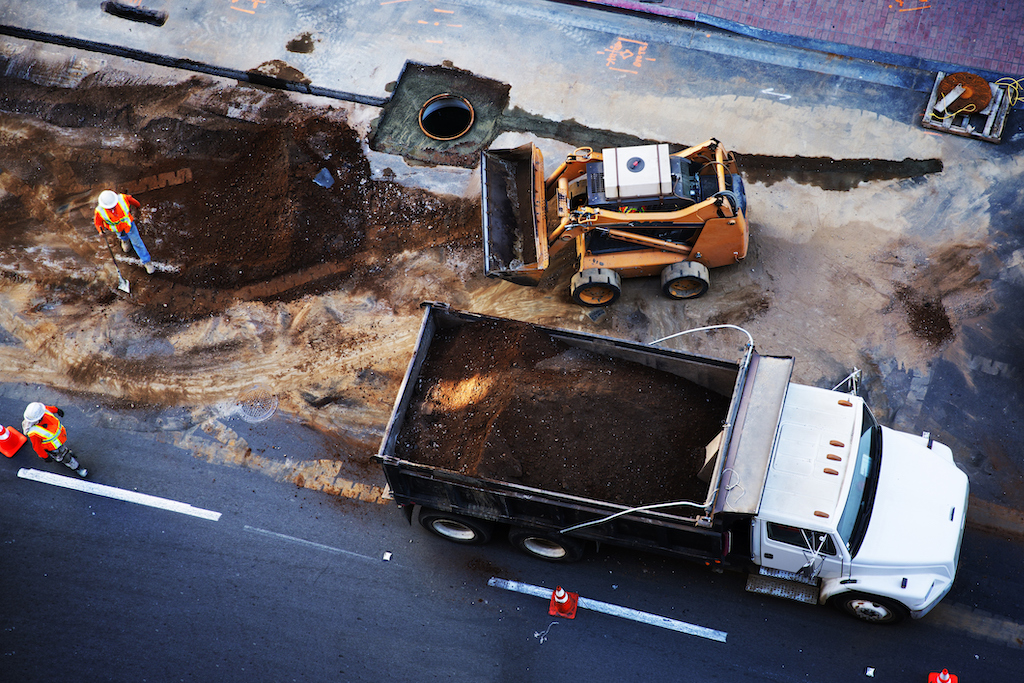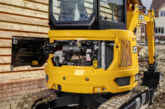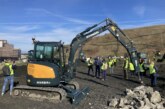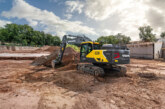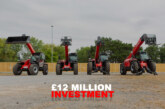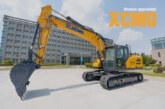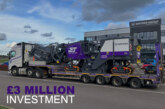The construction industry is currently booming in the UK. According to recent figures released in February by the Construction Equipment Association (CEA), retail sales of construction and earthmoving equipment increased by 40% in 2021 compared to 2020.
Sales of major equipment types, such as road rollers, excavators and loaders, all had more than a 50% uptick with sales of telehandlers more than doubling to 109% on the previous year.
Last year, the UK government announced a new super-deduction tax. Running from 1 April 2021 to 31 March 2023, it equates to a £25 million tax break for businesses investing in qualifying plant and machinery assets. There’s no doubt that this has had a positive impact on retail sales of construction equipment.
However, with this growth comes the greater potential for vehicle and worker related collisions.
Ground workers on construction sites are at particular risk from moving vehicles and equipment. Of the total fatal injuries to workers in 2020/2021, 11% were struck by a moving object and 10% by a moving vehicle, while 4% were killed due to moving machinery hitting them.
Blind spots on large worksite vehicles and machinery can be particularly deadly. The front, rear and nearside are problematic areas of vehicles, particularly those with elevated driver positions. Harsh construction site terrains, where thick dust and mud often decrease visibility even more, further increase the risk of accidents.
On construction sites, the need for safety is paramount, particularly as the slightest mistake can have devastating consequences.
 Emily Hardy (left), a commercial vehicle safety specialist at Brigade Electronics UK, said: “Approximately 70% of incidents on sites happen during initial machine start-up and low speed movement because of poor visibility. Construction sites can be extremely challenging and unpredictable environments. Therefore, maintaining safety at all times can be extremely difficult.”
Emily Hardy (left), a commercial vehicle safety specialist at Brigade Electronics UK, said: “Approximately 70% of incidents on sites happen during initial machine start-up and low speed movement because of poor visibility. Construction sites can be extremely challenging and unpredictable environments. Therefore, maintaining safety at all times can be extremely difficult.”
Smart technology is helping to address the problem of restricted visibility and blind spots in handling areas. These include the very latest RFID (Radio Frequency Identification) technology, such as Brigade’s ZoneSafe proximity warning system.
Emily continued: “We have been working with our trusted partners in Scotland, Banlaw Systems, Tayside Contracts, Andover Trailers and JCB Stewart Plant Sales, to provide solutions that will help to improve efficiency, enhance environmental and safety performance as well as offer rapid on-site attendance for fitting and repairs in the event of a system failure.
“Together, we have been focusing on bringing ever-advancing technology to the market designed specifically with construction vehicles and machinery in mind that will help make road and worksites safer. These include a range of products that will be showcased at ScotPlant 2022 in April such as Brigade’s 360 HD MDR with BRIDGE – a high-definition recordable vehicle CCTV system with cloud connectivity – its DVS Safe System Kit, bbs-tek White Sound reversing alarms and, of course, ZoneSafe.”
Ideal for construction sites, ZoneSafe uses vehicle-mounted antennas that communicate with detection tags, which can be worn by workers, set up in restricted areas or placed on objects or property. When a tag enters a detection zone, the vehicle operator will automatically receive a visual and audible alert via the in-cab control unit, which will enable them to take the necessary action. Tags worn by workers on foot will also vibrate to warn of an approaching vehicle.
Due to the RFID technology, which does not require line-of-sight, tags will be detected regardless of obstructions, blind spots, adverse weather conditions or poor visibility. Each tag can be uniquely identified and linked to individual people.
Emily continued: “This technology is ideal for all types of construction vehicles that frequently operate within close proximity of workers and other machines. The system provides fast, reliable and accurate data exchange without any limitation on the number of tags or antennas in operation, making it perfect for large areas like busy construction sites.”
As the number of construction sites increase, more will need to be done to address the issue of enhancing safety in areas where machinery and ground workers operate.
Emily added: “Driver training is obviously key to ensuring safety standards are adhered to. However, vehicle safety technology can add an additional layer of security and peace of mind for operators who are keen to ensure that their workplaces remain hazard free.”
Banlaw Systems will be attending ScotPlant 2022 at Royal Highland Centre, Edinburgh from Friday 22nd to Saturday 23rd April and exhibiting Brigade Electronics’ range of plant and construction vehicle safety systems, including ZoneSafe. Find them at Avenue T, stand 4.
Information and advice about Brigade’s products will also be available from Tayside Contracts, Andover Trailers and JCB Stewart Plant Sales.


